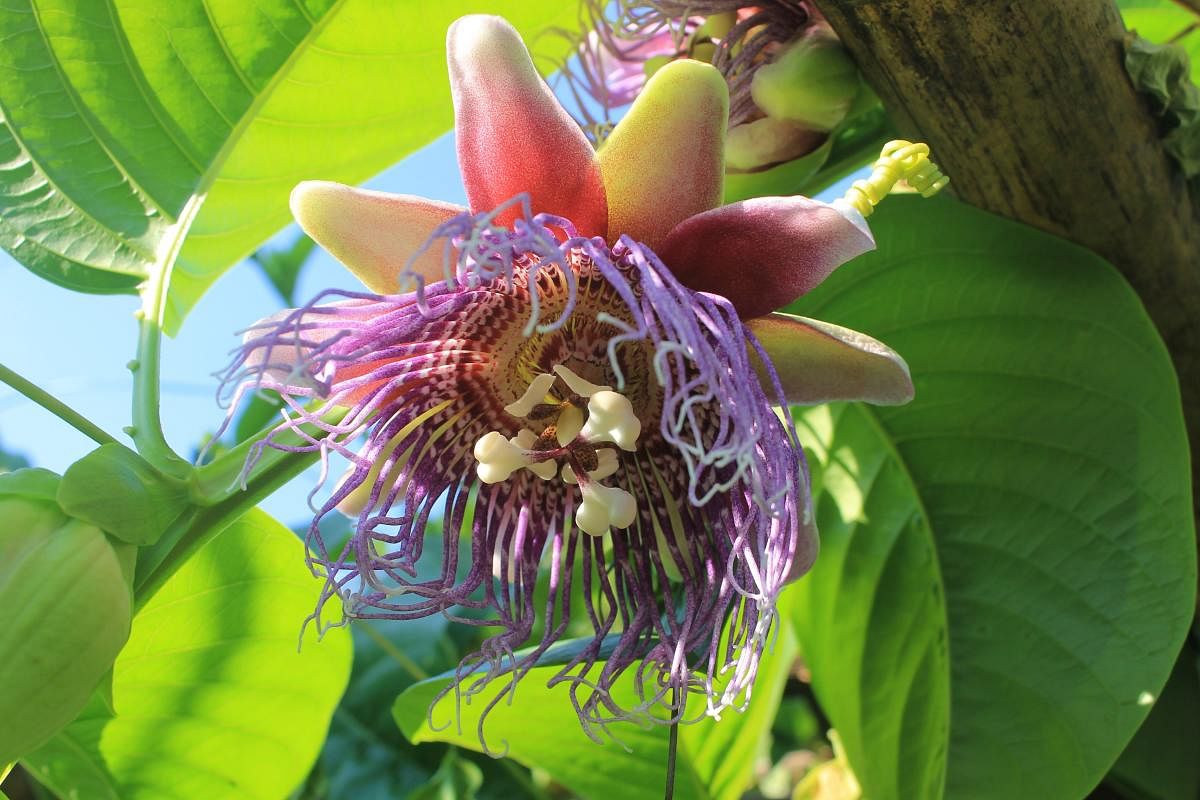
Like all plant lovers, I walk into a nursery with a list of four plants and walk out with 20. Unhurried I wander, stand and covet every plant I see. Each of them is a delight, and I make a mental note of where they can fit in the garden space. I google about the ones I am unfamiliar, or ask the nurserymen about their sun and water requirements. The handcart gets filled in no time. Simultaneously I feel thrilled and guilty about my purchases. In the last one and a half years, the pandemic has paused my wanderings. When the physical doors closed, the internet windows opened, and I discovered online nurseries which deliver plants.
We are responsible for each plant in our garden. And each responsibility is a learning curve. This summer, a passionflower vine, Passiflora Incarnata, one of the oldest vines in my garden, died. Bandicoots burrowed close to the roots and destroyed it. I was heartbroken. I’ve loved the company of passiflora, and so have the bees and birds. It was a host to tawny coaster butterflies and to a variety of praying mantis. It was also a source of inspiration for my artwork.
I missed the vine. I ordered a similar variety from an online portal which got delivered a week later. Instead of planting it in the ground, which is ideal because the roots of passion run deep, I planted it in a pot to save it from rodents. Shifting a new plant to a pot, whether it is bought or grown from a seed, is the first hurdle any gardener has to cross. It takes a while for a new plant to feel comfortable in its surroundings. And vines are quick to climb if given support. They require the least maintenance. There were fresh leaves a few days later on the passiflora. I thought I had crossed my first hurdle.
A vine of determination
My garden had grown wild during the lockdown. I often wonder why plants prefer the neighbour’s garden to stretch and yawn, more than ours! The tree branches were intruding into the neighbour’s compound. I did as much as I could to tame them, but it required my gardener to spend a day to clear the wilderness. After he left, I noticed that the passionflower vine was flat and lifeless in the pot. A part of the stem had fractured. While clearing, one of the branches must have grazed on it and forced it down. I could have prevented this from happening, I thought. Years back, I would’ve probably given up, said that I was not lucky with passion vines, thrown up my hands in the air and accepted defeat. Having spent considerable time in the garden, I knew I had to do something and bring it back to life.
I’ve been trying to master the air layering technique for some time now. Air layering is one of the oldest, natural, and simplest techniques in plant propagation. Do you remember seeing pictures of nearly horizontal trees that have sprung back to life? These trees are partially rooted and have a branch that rests on the ground. The moist soil coaxes it to produce roots, offshoots appear eventually and the tree survives. We have adapted and modified this technique to grow plants in nurseries and gardens for centuries now.
I supported the vine with a tender bamboo stick and carefully enveloped the fractured part of the vine along with the bamboo using wet mud. I bandaged it with grafting tape and bound it again with a string. I waited in anticipation for the rest of the week. There were no signs of wilt, which was promising. A few days later, there was a hint of fresh leaf. It had survived.
Leap of faith
Vines teach you many life lessons. They set an example by seeking new heights. They also nudge you to do the same, take a leap of faith and go beyond your comfort zone. There is a sense of accomplishment when you actually do that. There are also invasive vines from which you should deduce. Say, like the Lantana. Lantana looks like a shrub and behaves like a vine, winds itself on the host plant and strangles it. Keep away from people who take over your space and stifle your growth.
Like every learning curve, gardening too is peppered with gains and losses. It presents you with unique experiences if you are welcoming and open-minded. A famous quote that I came across recently aptly reads “When you plant a seed of love, it is you that blossoms.” Until next time, happy gardening and cheers from Portulaca flowers.
Motley Garden is your monthly pot-pourri of observations and lessons from gardening and nature.
The author is a botanical artist from Bengaluru. You can find her on Twitter and Instagram as @neelavanam